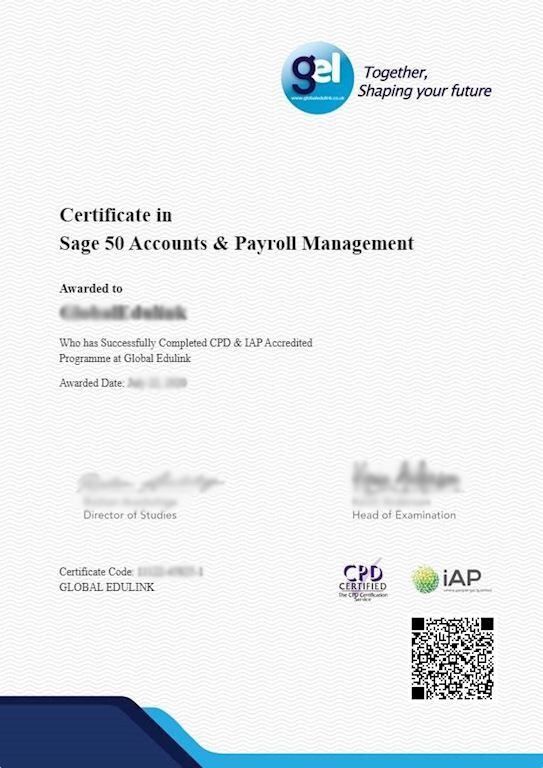- Duration / Course length: Upto 10 Hours Start now
- Accredited by: CPDiAP
- Certificates:
- Course delivery: This course is delivered in video format
Course details
Microsoft Access 2013 is the number one database application in the world and is designed to make databases easier to create and use. It's essentially used to store a set of information, query that information, build easy-to-use graphical interfaces, and create reports on the stored data.On this course, provided by Global Edulink who offer the world's best online education all in one place, you are taken step-by-step through the software by qualified trainers who are specialists in their field of work. We make it easy for you to understand how to use the software, from the fundamental aspects such as setting up tables, inputting and manipulating table data, and generating reports, through to advanced skills such as carrying out mail merges, entering data using macros, creating and designing forms, and generating queries and reports.
COURSE CURRICULUM
------------ BEGINNER ------------
1. INTRODUCTION TO ACCESS 2013
- Orientation to Microsoft Access
- Simple Access Database
- Get Help in Microsoft Access
- Modify Table Data
- Sort and Filter Records
- Create Lookups
- Join Data from Different Tables in a Query
- Sort and Filter Data in a Query
- Calculations in a Query
- Parameter Queries
- Action Queries
- Unmatched and Duplicate Queries
- Summarize Data
- Create a Report
- Controls to a Report
- Appearance of a Report
- Report for Print
- The Access Options Dialog Box
1. RELATIONAL DATABASE
- Relational Database Design
- Create a Table - Access
- Create Table Relationships
- Create Query Joins
- Join Tables That Have No Common Fields
- Relate Data within a Table
- Work with Subdatasheets
- Create Subqueries
- Data Normalization
- Create a Junction Table
- Improve Table Structure
- Import Data into Access
- Export Data to Text File Formats
- Export Access Data to Excel
- Create a Mail Merge
- Organize Report Information
- Format Reports
- Control Formatting in a Report
- Add a Calculated Field to a Report
- Subreport to an Existing Report
1. ADVANCED FORM DESIGN
- Create Subforms
- Organize Information with Tabs Pages
- Navigation of Forms
- Conditional Formatting
- Field and Record Validation
- Form Validation
- Create a Macro
- Restrict Records Using a Condition
- Validate Data Using a Macro
- Automate Data Entry Using a Macro
- Convert a Macro to VBA
- Link Tables to External Data Sources
- Manage a Database
- Determine Object Dependency
- Document a Database
- Analyze the Performance of a Database
- Splitting a Database for Multiple User Access
- Implement Security
- Set Passwords
- Convert an Access Database to an ACCDE File
- Analyze the Performance of a Database
- Create a Database Switchboard
- Modify a Database Switchboard
- Set Startup Options
- High quality e-learning study materials and mock exams.
- Tutorials/materials from the industry leading experts.
- 24/7 Access to the Learning Portal.
- Benefit of applying NUS extra Discount Card.
- Recognised Accredited Qualification.
- Excellent customer service and administrative support.
Successful candidates will be awarded a certificate in Microsoft Access 2013 - Beginner to Advanced
Ultima actualização em 10 December, 2024
Eligibility / Requirements
- This course is available to all students, of all academic backgrounds. However, basic IT skills would be an advantage.
- Learners should be ages 16 or over to undertake the qualification.
- Good understanding of English language, numeracy and ICT are required to attend this course.
.jpg)
.jpg)


.jpg)
